
Overview
The water desalination industry involves the process of converting seawater, brackish water, or other saline sources into freshwater suitable for various uses, including drinking, agriculture, and industrial purposes. This is achieved primarily through desalination, which is the process of removing salts and other impurities from water to make it potable and usable. The water desalination industry has gained significance in regions facing water scarcity or where traditional sources of freshwater are limited. This includes arid and coastal areas where access to clean water is a challenge. The industry serves both municipal and industrial needs, providing a reliable source of freshwater for drinking, irrigation, industrial processes, and more.
Depending on specific features and functions, GAO Tek’s water conductivity testers are sometimes referred to as Salinity Meters, Conductance Testers, Dissolved Solids Analyzers, Electrolyte Level Checkers, Water Purity Gauges, Ionic Content Detectors, Conductivity Analyzers, TDS (Total Dissolved Solids) Meters, Brine Concentration Sensors, Saline Solution Testers, Electrolyte Conductivity Detectors, Water Quality Conductance Meters, Ionic Strength Testers, Salt Content Measurement Devices, Seawater Conductivity Analyzers, Dissolved Ion Concentration Meters, Electrical Conductivity Gauges, Desalination Monitoring Instruments, Electrolyte Conductance Testers, Conductivity and TDS Monitors.
GAO Tek’s water conductivity testers has the following applications in water desalination industry:
- Monitoring Desalination Processes: Conductivity testers are used to monitor the efficiency and effectiveness of desalination processes. They help ensure that the desalination plant is effectively removing salts from the water, leading to the production of high-quality freshwater.
- Quality Control: Conductivity measurements are essential for maintaining the desired level of water quality in the desalination process. By tracking changes in conductivity, operators can identify any deviations from the expected salt removal levels and take corrective actions as needed.
- Brine Disposal: Desalination processes generate a concentrated brine byproduct that contains high levels of dissolved salts. Conductivity testers are used to measure the conductivity of this brine, helping to ensure that the brine is properly treated and disposed of in an environmentally responsible manner.
- Monitoring Scaling and Fouling: In desalination systems, scaling and fouling—accumulation of mineral deposits on equipment surfaces—can significantly impact efficiency. Conductivity measurements help operators monitor the scaling potential of the feedwater and take preventive measures to minimize these issues.
- Process Optimization: By continuously monitoring the conductivity of feedwater and product water, desalination plant operators can adjust operating parameters to optimize the efficiency of the desalination process and minimize energy consumption.
- Leak Detection: Changes in water conductivity can indicate the presence of leaks or contamination in the system. Conductivity testers are used to detect such changes and take prompt action to prevent loss of freshwater or cross-contamination.
- Real-time Feedback: Conductivity measurements provide real-time feedback on the desalination process, allowing operators to make timely decisions and adjustments to maintain consistent water quality and operational efficiency.
- Research and Development: Water conductivity testers are used in research and development efforts to study the behavior of different feedwater compositions, test the performance of new membrane materials, and develop more efficient desalination technologies.
- Regulatory Compliance: Regulatory agencies often set specific limits for the conductivity of discharge water from desalination plants. Conductivity testers help plants ensure compliance with these regulations and avoid potential environmental impact.
- Maintenance Planning: Regular conductivity measurements can aid in planning maintenance activities, as changes in conductivity levels over time can indicate the need for cleaning or replacement of membranes, electrodes, or other components.
More information on water conductivity testers and their applications in other industries can be found on this page.
This category page lists related products.
Chemical & Life Sciences Products
GAO Tek’s targeted markets are North America, particularly the U.S., Canada, Mexico, and Europe. Hence, in addition to English, this website gaotek.com is offered in other major languages of North America and Europe such as Spanish, French, German, Italian, Polish, Ukrainian, Romanian, Russian, Dutch, Turkish, Greek, Hungarian, Swedish, Czech, Portuguese, Serbian, Bulgarian, Croatian, Danish, Finnish, Norwegian, Slovak, Catalan, Lithuanian, Bosnian, Galician, Slovene, Latvian, Estonian, Welsh, Icelandic, and Irish.
Complying with water desalination industry Standards
GAO Tek’s water conductivity testers comply or help our customers comply with the water desalination industry standards such as:
- ASTM D1125-95(2017).
- ISO 7888:2011.
- ISO 17294-2:2016.
- EPA Method 120.1.
- ASME PTC 30.1.
Complying with Government Regulations
GAO Tek’s water conductivity testers comply or help our customers comply with the U.S. government regulations such as:
- Safe Drinking Water Act (SDWA).
- Clean Water Act (CWA).
- National Pollutant Discharge Elimination System (NPDES).
- EPA Water Quality Criteria and Standards.
- State Regulations.
- FDA Regulations (if applicable).
GAO Tek’s water conductivity testers comply or help our clients comply with the Canadian regulations such as:
- Canadian Environmental Protection Act, 1999 (CEPA).
- Canadian Drinking Water Quality Guidelines.
- Fisheries Act.
- Provincial and Territorial Regulations.
- Environmental Protection Acts.
- Canadian Food Inspection Agency (CFIA) Regulations (if applicable).
GAO Tek’s water conductivity testers comply or help our clients comply with the Mexican regulations such as:
- National Water Law (Ley de Aguas Nacionales.
- General Law of Ecological Balance and Environmental Protection (Ley General del Equilibrio Ecológico y la Protección al Ambiente.
- Mexican Official Standards (Normas Oficiales Mexicanas, NOMs).
- National Commission of Water (Comisión Nacional del Agua, CONAGUA).
- State and Local Regulations.
- Ministry of Environment and Natural Resources (Secretaría de Medio Ambiente y Recursos Naturales, SEMARNAT).
GAO Tek’s water conductivity testers comply or help our clients comply with the European regulations such as:
- European Water Framework Directive (WFD).
- European Marine Strategy Framework Directive (MSFD).
- European Drinking Water Directive.
- Industrial Emissions Directive (IED).
- EU Member State Regulations.
- European Chemicals Agency (ECHA) Regulations.
- European Environment Agency (EEA).
- European Commission.
Case Studies of water conductivity testers in Water Desalination Industry
Water conductivity testers are sometimes called as Salinity Meters, Conductance Testers, Dissolved Solids Analyzers, Electrolyte Level Checkers, Water Purity Gauges, Ionic Content Detectors, Conductivity Analyzers, TDS (Total Dissolved Solids) Meters, Brine Concentration Sensors, Saline Solution Testers, Electrolyte Conductivity Detectors, Water Quality Conductance Meters, Ionic Strength Testers, Salt Content Measurement Devices, Seawater Conductivity Analyzers, Dissolved Ion Concentration Meters, Electrical Conductivity Gauges, Desalination Monitoring Instruments, Electrolyte Conductance Testers, Conductivity and TDS Monitors.
Here are some practical examples of using water conductivity testers in water desalination industry:
A desalination plant located along the coastline of New England might use water conductivity testers to monitor the salt concentration in seawater before and after the desalination process. These measurements help ensure that the plant is efficiently removing salts to produce freshwater that meets quality standards.
An industrial facility in New York using desalinated water for its processes could employ conductivity testing as part of its water quality management. Continuous monitoring would help them identify changes in water composition that might affect their operations.
A research facility in New Jersey focused on developing innovative desalination technologies might use water conductivity testers to assess the performance of new membrane materials or treatment processes. Conductivity measurements could provide insights into the efficiency of salt removal.
A municipal water authority in Pennsylvania exploring desalination to address water scarcity could use conductivity testing to ensure the quality of desalinated water before distribution to residents. These measurements would help meet drinking water standards.
A desalination plant in Connecticut might use conductivity testers to monitor the conductivity of brine by products generated during the desalination process. This ensures that the brine is appropriately treated and meets regulatory requirements before being discharged.
A desalination facility located along the coastline of British Columbia might utilize water conductivity testers to monitor the salinity levels in seawater before and after the desalination process. This helps ensure that the plant is effectively removing salts and producing freshwater that meets quality standards for municipal and industrial use.
A mining operation in Alberta could be using desalinated water for its processes. Conductivity testing might be crucial in monitoring the water quality and ensuring that the desalinated water meets the specific requirements of the mining operations without causing any adverse effects.
In a remote community in Nunavut facing freshwater scarcity, a desalination system could be employed to provide drinking water. Water conductivity testers would play a role in ensuring that the desalination process is functioning properly and producing safe drinking water for the community.
A research institution in Ontario might focus on studying novel desalination technologies. Water conductivity testers could be used to analyze the effectiveness of experimental processes or materials in removing salts from water.
In regions around the Great Lakes, where lake water might have higher salinity due to various factors, a desalination plant might use water conductivity testers to assess the efficiency of the desalination process and ensure that the treated water aligns with local water quality standards.
In a coastal region like Baja California where tourism is prominent, a desalination plant could use water conductivity testers to monitor the quality of desalinated water used in hotels and resorts. This ensures that the water provided to tourists meets the necessary standards for both drinking and recreational use.
In an agricultural area like Sonora, desalination might be used to provide irrigation water. Water conductivity testers would play a role in maintaining the appropriate salinity levels for crops, preventing soil degradation due to excessive salt accumulation.
In an industrial area like Nuevo León, a desalination plant might supply process water to manufacturing facilities. Conductivity testing could be crucial to ensuring that the desalinated water meets the required specifications for various industrial processes.
In a coastal community along the Yucatán Peninsula, desalination could be used to address water scarcity. Water conductivity testers would be important to monitor the quality of desalinated water for residential use and local businesses.
An academic institution in Mexico City could be conducting research on optimizing desalination processes. Water conductivity testers might be used to analyze the efficiency of various techniques and their impact on water quality.
In a coastal city along the Mediterranean Sea, a desalination plant might use water conductivity testers to monitor the quality of desalinated water supplied to households and businesses. This ensures compliance with drinking water standards and helps address water scarcity issues.
An industrial zone in Germany could rely on a desalination facility to provide process water for manufacturing. Water conductivity testers would be essential to maintain water quality suitable for various industrial processes.
In an agricultural region like Andalusia, a desalination plant could provide irrigation water. Conductivity testing would help ensure that the desalinated water meets the specific requirements of crops, preventing soil salinization.
A research institute in the Netherlands might be exploring advanced desalination technologies. Water conductivity testers could be used to assess the efficiency of these technologies and their potential application in the region.
On an island in Greece, where freshwater resources might be limited, a desalination system could be used to provide drinking water. Conductivity testing would play a role in maintaining water quality and ensuring the health and well-being of the community.
GAO RFID Inc. a sister company of GAO Tek Inc., is ranked as a top 10 RFID supplier in the world. Its RFID, BLE, and IoT products have also been widely used in Water Desalination Industry.
Use of water conductivity testers with Leading Software and Cloud Services in Water Desalination Industry
- SCADA (Supervisory Control and Data Acquisition) Systems.
- Data Logging Software.
- Water Quality Monitoring Software.
- Laboratory Information Management Systems (LIMS).
- IoT Platforms.
- Process Optimization Software.
- Environmental Monitoring Software.
- Custom Software Solutions.
- Process Monitoring and Control Software.
- Modeling and Simulation Software.
- Statistical Process Control (SPC) Software.
- Time Series Analysis Software.
- Data Analytics Platforms.
- Environmental Monitoring Platforms.
- Process Optimization Platforms.
- Custom Cloud Solutions.
- Industrial Automation Platforms.
- Remote Monitoring Services.
- Cloud-based SCADA Systems.
- Cloud Data Analytics Platforms.
- IoT Analytics Services.
- Environmental Monitoring Cloud Service.
- Process Optimization Cloud Platforms.
- Custom Cloud Solutions.
- Cloud-Based Machine Learning and AI Platforms.
- Remote Monitoring and Alerting Cloud Services.
- Industrial Automation Cloud Platforms.
GAO Tek’s water conductivity testers and their applications in other industries are listed on this page.
Other related products can be found at this category page.
Meeting Customers’ Demands
Large Choice of Products
In order to satisfy the diversified needs of their corporate customers, GAO Tek Inc. and its sister company GAO RFID Inc. together offer a wide choice of testing and measurement devices, network products, RFID, BLE, IoT, and drones.
Fast Delivery
To shorten the delivery to our customers, GAO has maintained a large stock of its products and is able to ship overnight within the continental U.S. and Canada, and fast delivery to Mexico and Europe from the nearest warehouse.
Local to Our Customers
We are located in both the U.S. and Canada. We travel to customers’ premises if necessary. Hence, we provide a very strong local support to our customers in North America, particularly the U.S., Canada and Mexico and Europe. Furthermore, we have built partnerships with some integrators, consulting firms and other service providers in different cities to further strengthen our services. Here are some of the service providers in water desalination industry we have worked with to serve our joint customers:
- CDW.
- World Wide Technology (WWT).
- SHI International Corp.
- Dimension Data.
- Logicalis.
- Carousel Industries.
- Trace3.
- Integration Partnerse.
- Advantech.
- Cantata Technology.
- Acrobits.
- Integrationworx.
- Davcon Telecommunications.
- Integrated IT Solutions.
- Accenture.
- Deloitte.
- Cognizant.
- IBM Global Business Services.
- Capgemini.
- Infosys.
- PwC (PricewaterhouseCoopers).
- KPMG.
- EY (Ernst & Young).
- Wipro.
- NTT Data.
- Tech Mahindra.
- CGI Group.
- Tata Consultancy Services (TCS).
- DXC Technology.
- Compugen.
- Long View Systems.
- Softchoice.
- OnX Canada.
- Scalar Decisions.
- WBM Technologies.
- TELUS Business.
- Compudyne.
- Navantis (acquired by Datavail).
- NetGain.
- Clear Concepts.
- ProServeIT.
- F12.net:.
- TeraMach Technologies.
- RedBit Development.
- Softtek.
- Neoris.
- Axity.
- EIKON Technology.
- Vector ITC Group.
- Megacable Holdings.
- Grupo Dice.
- Sintra Consulting.
- Novatronic.
- Iteknia.
- Xalok.
- Rassini Sistemas.
- Tekton Labs.
- Indigo.
- Netland.
- Atos.
- Capgemini.
- TietoEVRY.
- Computacenter.
- Sopra Steria.
- Accenture.
- Atos Syntel.
- Sogeti.
- Dimension Data.
- T-Systems.
- Computas.
- Devoteam.
- Ness Digital Engineering.
- Mphasis.
GAO Has Many Customers in Water Desalination Industry
The products from both GAO Tek Inc. and GAO RFID Inc. have been widely used in Water Desalination Industry by many customers, including some leading companies. Here is more information on applications of GAO RFID Inc.’s products in Water Desalination Industry.
Utilities Industry | RFID Solutions
Here are some of the leading companies in Water Desalination Industry:
- Xylem Inc.
- IDEXX Laboratories.
- SUEZ North America.
- Veolia North America.
- Aquatech International.
- H2O Innovation.
- SNC-Lavalin.
- Doosan Enpure.
- Enviro Water Minerals Company.
- Acciona Agua.
- Aqualia.
- ACWA Power.
- Baja California Public Private Partnership (BCP3).
- Saltworks Technologies.
- Befesa.
- IDESA.
- Aquasistemas.
- Conagua.
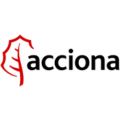
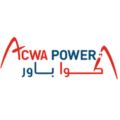
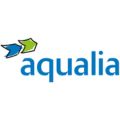
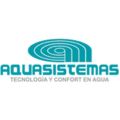
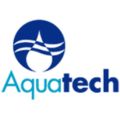
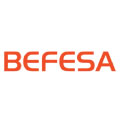
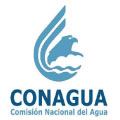
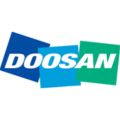
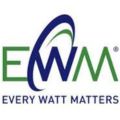
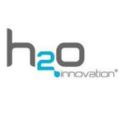
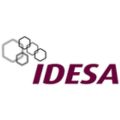
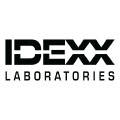

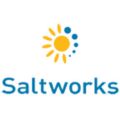
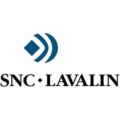



Contact Us
If you are interested in our products, services or partnering with us, please feel free to contact us by filling out this form:
or email us at sales@gaotek.com
